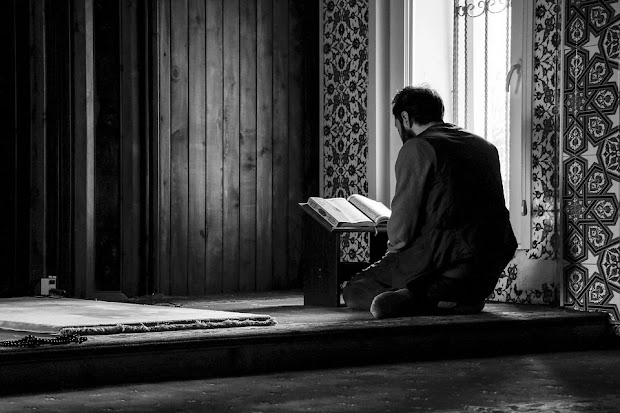The word Sunnah literally means clear and well-trodden. The Qur'an has used the word to explain the manner in which Allah has dealt with the nations.
[This is] the established way of Allah with those [prophets] who have passed on before. And ever is the command of Allah a destiny decreed. [Qur'an 33:38]
The word sunnan in the deen of Islam denotes the practice of the Prophet that he taught all his companions and practically instituted, as the best example and a teacher of the shari'ah. The purpose was to fulfil the divine injunction, purify the religious rites and mould the life of the people in accordance with the teachings of the Qur'an. The Qur'an states these as a part of the responsibilities that were given to the Prophet.
"Certainly did Allah confer [great] favor upon the believers when He sent among them a Messenger from themselves, reciting to them His verses and purifying them and teaching them the Book and wisdom, although they had been before in manifest error." [Qur'an 3:164]
The entire edifice of Islam is built on the building blocks of sunnah. If we set aside the sunnah we shall only be left with the primary principles of the deen and will remain ignorant of their practices. This is the reason why the Prophet said, "I have been granted the Qur'an and with it, something similar to it." [Abu Dawood No. 4604]
Dissemination of Sunnah
The Prophet was granted two things as a part of the deen of Islam and both were transmitted in a similar fashion to the Ummah. The Qur'an was revealed to the Prophet through Jibreel a.s. who recited the verses to the Prophet, who in return recited and taught the same to all his companions. The transmission of the Qur'an does not rely on any individual chain of narrators. In fact, it has been transmitted unanimously by consensus and general agreement from one generation of the ummah to another. A transmission on such a huge scale of an entire generation leaves no room for any individual or group of individuals to fabricate or corrupt the original.
The sunnah was also granted to the Prophet in a very similar way. In fact, the best example of this that we have already discussed is the prescription of salah. The same angel, Jibreel a.s. that brought the Qur'an to the Prophet s.a.w also taught him the salah. [An elaborate report narrating the same can be found in sunan an-Nasa'i Vol. 1, Book 6, Hadith 514].
The Prophet taught the salah to all his companions in the same manner that he taught the Qur'an. He then commanded them to teach the same to others. The sunnah was transmitted generation after generation, with a general consensus of the whole ummah and left no room for any forgery by individuals or groups of individuals.
Transmission of Hadith
Hadith, unlike the Qur'an and Sunnah, were subjected to fabrication and innovation. They were historical records and reports of events written down and compiled after the death of the Prophet. This made it very important to investigate and authenticate every such narration that was attributed to the Prophet. This gave rise to an entire field of Hadith Science.
With the efforts of the pioneers in the field of Hadith Literature, narrations were filtered and categorized according to their credibility. This, however, varied from scholar to scholar. Eventually, while one hadith was acceptable to one, the other did not deem it fit to include the same hadith in his collection.
A common example of this includes the ahadith mentioning Imam Mahdi. While Abu Dawood and later muhaddithun accepted the narrations, Imam Malik, Imam Bukhari, as well as Imam Muslim, did not accept any hadith specifically mentioning "Imam Mahdi".
Now, if we include hadith within the content of deen, along with the Qur'an and Sunnah, the question would still arise, which hadith? The subjective nature of hadith would, in fact, make the boundary of a well-defined deen, very indefinite.
Conclusion
Hadith no doubt forms a very valuable source of information that gives us great insight into the deen. They do not add or remove contents from the deen but are historical records that reflect the deen when put into practice.
The deen of Islam was given to us entirely by the Prophet, through the Qur'an and the Sunnah. No work of authentication or filtration did the Prophet leave for later generations. In fact, it was not even required because the deen, both Qur'an and Sunnah was transmitted not by any individual or group of narrators but by an entire generation of Ummah that learnt it from the Prophet and transmitted it to the next, so on and so forth, until it reached all the way to the present generation.

Comments
Post a Comment